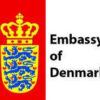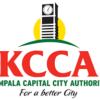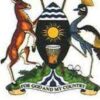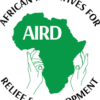Technical assistance to undertake a feasibility study on commercial pasture production and management by smallholder farmers in northern Uganda
Overview of Uganda Climate Smart Jobs (CSJ)
Uganda Climate Smart Jobs (CSJ) is a 4-year programme funded by the UK’s International Climate Fund. CSJ consists of three sub-components: component 1A, which is a market systems development intervention; Component 1B, which is running a challenge fund called the Uganda Climate Innovation Fund; and Component 1C, focusing on supporting innovations that target ecosystem services and sustainable land management, such as services relating to biodiversity, water supply, tree planting, and soil management.
Component 1A of the CSJ programme will be implemented and delivered through a market development approach that involves partnerships with the private sector. The key objective of CSJ component 1A is to support large-scale job creation in the agri-business sector, with a view to improving productivity and/or incomes in agriculture.
Component 1C builds on that market system development approach but focuses on ecosystem services/sustainable land management. Component 1C has designed innovations and interventions that are commercially viable and scalable, and which maximise the benefits of ecosystem services to smallholder farmers, women, refugees, and host communities. Component 1C will work with private sector and agri-SMEs (Small to Medium Enterprises) to test innovations that are pre-proof of concept or post-proof of concept. These innovations will provide solutions to SHFs to cope with the impact of climate change through sustainable land management practices. 1C will explore existing or new market opportunities for sustainable land management where the private sector, individual, and community groups may lack sufficient incentive to participate. Component 1C has four innovations or thematic areas: agroforestry, climate financing, soil restoration, and non-timber forest products.
Background to the assignment
The inception research conducted by CSJ in northern Uganda and Kiryandongo revealed several constraints that contribute to increasing land degradation and low productivity among SHFs. Poor rangeland management practices associated with periodic bush burning, overgrazing and less pasture preservation practices during the wet seasons are key reasons for land degradation for SHF engaged in livestock production. These practices are linked to acute pasture shortage during dry seasons, which impacts the quality and productivity of livestock and livestock products in the region.
CSJ is seeking to increase the participation of smallholder livestock farmers in northern Uganda in commercial pasture production and management. At scale, this intervention would drive a positive change among SHFs that will result in the rehabilitation and management of degraded grazing land as well as address the traditional norm of bush burning during dry season to ensure all-year-round pasture availability for increased livestock productivity. This concept is still at the pre-proof-of-concept stage in northern Uganda, thus CSJ is seeking to develop a business case by piloting the adoption of private sector-led commercial pasture production and management by SHFs.
CSJ believes that the adoption of commercial pasture production and management will not only enhance the quality of grazing land but also result in improved livestock productivity and increased SHF incomes. Additionally, sustainable pasture management practices will also lead to increased biomass, biodiversity, soil fertility and enhanced quality of ecosystem services.
Objective of the assignment
The consultant will undertake a feasibility study which will provide a business case for commercial pasture production, conservation, and management by smallholder farmers in northern Uganda. The study will seek to understand SHF perceptions on commercial pasture production in northern Uganda, the common species used and their availability in the region. A key part of the feasibility study will be to map existing private sector players in this value chain. The study will also establish the existing pasture conservation practices/methods in the region, the common pasture species used and their availability, and provide a cost-benefit analysis for smallholder commercial pasture production. The cost-benefit analysis will compare free-range grazing with the use of conserved pastures during periods of pasture shortage.
The research will provide information for private sector actors and smallholder farmers on how best to engage in commercial pasture production and management. The cost-benefit analysis will also inform the development of a suitable private sector-led model for engaging SHFs in commercial pasture production. It is key to note that the study will not focus on communal rangeland management.
Scope of work
The goal of this study is to provide relevant information and insights that can guide decision-making for CSJ. The study will be conducted in the different regions of northern Uganda, including Kiryandongo district and the Lango, Acholi, and West Nile sub-regions.
Tasks include:
Conduct a desk review of recent published and grey literature (+ ground truthing of findings) of smallholder communal livestock grazing practice in northern Uganda, including the grazing methods, the pros and cons of these methods, and existing and potential constraints associated with communal grazing methods.
Conduct a desk review of recent published and grey literature (+ ground truthing of findings) of the environmental benefits of sustainable rangeland management, including its benefits on improving soil health, both the physical and chemical properties, erosion control and carbon sequestration. Also consider possible negative impacts of poor rangeland management.
Identify any existing pasture conservation methods being used by smallholder livestock farmers or others in conserving and management of communal rangelands in Uganda, where possible stating the actions taken, the underlying motivation (if known), and how the community has benefitted from it.
Understand the current demand for conserved pastures in northern Uganda by smallholder and commercial livestock farmers (e.g., by identifying and meeting notable stakeholders, such as Gulu Dairy).
Conduct a cost-benefit analysis of existing pasture conservation methods in northern Uganda and make economic recommendations of the most viable method(s).
Determine the market entry or investment barriers for smallholder farmers and small and medium enterprises (SMEs) in commercial pasture conservation and management, outlining existing and potential opportunities, and propose strategies for overcoming these barriers to market entry.
Map the private sector actors in northern Uganda who are engaged in commercial pasture conservation and management, detailing their profiles, geographical scope of operation, and capacity.
Identify the availability and types of equipment used for pasture preservation and assess the presence of skilled fabricators of such equipment in northern Uganda.
Develop recommendations for CSJ and private sector actors to drive increased adoption of commercial pasture production among smallholder farmers in northern Uganda.
Key Deliverables
A draft feasibility report (not more than 20 pages, excluding appendices)
A draft PowerPoint presentation
A final report based on the feedback from CSJ technical team
A final PowerPoint presentation
Experience and expertise required.
Advanced degree in agriculture, Livestock management, business administration or related field.
Experience in developing commercial business models for livestock management, with a specific focus on livestock nutrition.
A deep understanding of the Northern Uganda livestock context, its unique challenges and opportunities.
Background in supply chain/value chain analysis and management, ability to map and assess challenges faced by livestock farmers.
Experience in problem identification and root cause analysis in the agricultural sector.
Cultural awareness and sensitivity especially working with diverse communities.
Knowledge of the Uganda, Northern Uganda private sectors and smallholder farmer contexts are important.
Excellent communication skills, both written and verbal, are essential. The consultant should be able to articulate complex ideas clearly and effectively to diverse stakeholders.
Strong analytical and problem-solving skills, with the ability to use data-driven insights to inform strategies and decision-making.
Level of effort
We expect the level of effort for this TOR to be up to 25 days for a Senior Expert. However, this LOE could be distributed amongst a team with different levels of experience, but with the Senior Expert conducting at least 50% of the input days and overseeing the coherence and quality of the work processes and outputs.
Submission instructions
Submit a set of observations and suggestions on the ToR of up to one page plus an overview of the consultant/organisation’s experience related to the TOR, and the makeup of the team. Also submit a 1-page budget as well as 2 examples of previous work and 2 references. Proposals should be submitted electronically to info@csj.co.ug.
The deadline for the submission of the technical and financial proposal is 13 March 2024.
CSJ MD reserves the right to negotiate and award this contract with the contractor who demonstrates the best approach, rather than on awarding this contract solely based on the lowest cost. This solicitation does not require CSJ MD to award a contract.
Note that only shortlisted consulting firms/individuals will be contacted. If you have not received communication from CSJ MD within four weeks from the submission deadline, consider your bid unsuccessful.
More Information
- Address Kampala, Uganda, East Africa

















